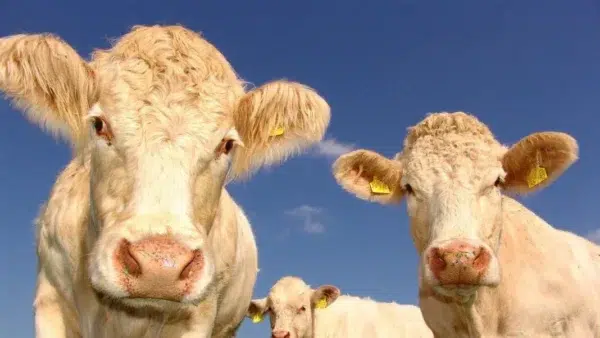Concern within the agricultural industry, especially grower associations, is mounting over the farm bill as dissention continues among U.S. policymakers.
For example, in a September 24 policy brief to its membership, the American Soybean Association stated, “With the far-reaching consequences of this summer’s drought and the outlook for next year’s crop unknown, this would be the worst possible time for Congress to fail to meet its responsibilities. We need a farm bill now!”
Steve Wellman, a Nebraskan farmer and president of ASA says, “With a new federal budget, with a new baseline, with sequestration looming in January, how do you get enough votes, especially with perhaps many new faces, to pass a new farm bill? Not getting it done in this lame-duck session is so vital. Any extension of the current farm bill just makes it that much more difficult to get a new farm bill passed.
“Congress has a very limited amount of time in this lame-duck session. If nothing happens then all the work on the bill in both chambers is pointless,” he says. And with the election now decided, Wellman says President Obama will not want to “find this task on [his] to-do list for next year.”
“Congress has a very limited amount of time in this lame-duck session. If nothing happens then all the work on the bill in both chambers is pointless.”
— Steve Wellman
He also says the increasing costs of the Federal Crop Insurance Program could be a budget issue but has been a unifying voice for agriculture. “The Federal Crop Insurance Program is different legislation and a different funding mechanism than the USDA farm bill, although legislative changes to crop insurance can be made at any time. It seems both houses recognize that crop insurance needs to be the foundation for any of the commodity programs and that is key in moving forward on the next five-year farm bill.”
According to Wellman, proposed changes to the Conservation Reserve Program could be beneficial for the seed industry. “Under both proposals, the CRP cap is being reduced from the 32 million CRP acres cap down to 25 million acres over the five years of the next farm bill,” explains Wellman. “We’re at about 30 million CRP acres currently, so we’re talking about five million acres back into crop production. That would be positive for the seed industry. Also, we’re suggesting more use of cover crops in a revised conservation farming package. That too should be opportunity for the seed industry to supply seed for these cover crops.”
With respect to renewable energy, ASA’s position is to keep pushing for the restoration of the blender’s credit for biodiesel. “That credit expired last year and restoring the credit will create certainty for continued production,” says Wellman. “Biodiesel puts more value into our soybeans, potentially helping the livestock industry because of increased production of soybean meal. The beauty of a bigger market for soy oil is that it also enhances total protein production, and with protein rapidly becoming a limiting factor in many human diets, we think renewal of the blender’s credit is vital.”
Ultimately, Wellman concludes that as global protein needs are projected to increase 75 percent by 2025, American soybeans will become increasingly important. “We’re going to [continue to] work on behalf of soybean farmers,” says Wellman. “However, we strongly support reenactment of the Trade Authority provision for the president. With presidential authority, trade issues can be voted up or down without amendments. We certainly advocate for reinstituting that authority.”
Bruce Rohwer, president of the Iowa Corn Growers Association, is also frustrated at the delays in passing a farm bill. “Many parts of our country experienced drought conditions this year. Yet there are provisions for those producers in a crisis situation within the farm bill framework that the Senate passed in June. The House Ag Committee also passed a farm bill. The leadership of the House has prevented it from moving forward. There is no need for lack of action now the 2008 bill is expired,” he argues.
“Passage of the farm bill is something everyone has a stake in, not just farmers—it affects us all.”
— Bruce Rohwer
Rohwer notes the lack of a farm bill jeopardizes the future of exports because of the loss of funding for several export programs. “In a short year we need to be working with our customers to help get through this year, and the weather will change, and in a year or two we will need every customer. When exports do well, farmers do well, then main streets do well,” Rohwer says. “Passage of the farm bill is something everyone has a stake in, not just farmers—it affects us all.”
Looking at it from the perspective of both producers and consumers, Rohwer maintains that the farm bill is actually about programs and policies that provide a sustainable, safe and reliable food source for people. “People’s food is really what farming is all about. We need the structures that assure [us that] food is available year after year, and not be thrown into disarray because of Mother Nature’s whims and the markets,” he says.
According to Irv Parker of Cornland Consulting in Farmington, Minn., “The seed industry doesn’t take its leads from the farm bill. Farmers do, however, but until the skirmishes between the two chambers get resolved, there’s not likely to be a new farm bill.
“Farmers today take considerably more risk than years back. The general public doesn’t understand that economic fact. The farm bill provides a big safety net for farmers because it has to. We’ve got seven billion people on this planet today; the projection is nine billion by 2050. Who’s going to feed them?” Parker asks. “That’s why Congress has to get in gear. A farm bill does exactly what it’s supposed to do: It’s a big safety net that encourages farmers to maximize production. Yes, that safety net also solidly protects the long-term business plans of the American seed industry.”
But the real question, according to Greg Ruehle, CEO of the Independent Professional Seed Association, is “What is the most efficient way to make certain we maintain our historical cheap food policy?”
“Our farm programs over the past 50 years have been built on maintaining an affordable food supply domestically and allowing American farmers to be competitive in international markets,” says Ruehle. “So if we’re moving away from the direct subsidy approach to a more market-based policy, then I think revenue assurance-based Federal Crop Insurance makes a lot of sense. The entire seed industry benefits when agriculture is market driven.”
When it comes to the renewable energy debate, Ruehle believes that most people will hold firmly to their positions, which remain fairly polarized. “Folks are pretty well cemented on either side of the issue. I think it will be tough to put the genie back in the bottle to reduce that renewable fuel standard, and the livestock industry is paying the price right now,” he says. “Plus, it appears this U.S. corn crop is better than anticipated. Demand is strong. Ethanol plants are taking corn right out of the field; wheels already are being put under a lot of this Minnesota crop, because you’ve got corn up there with buyers across the industry needing it.”
According to Wellman, delays in passing a new farm bill will present challenges in the new year. “Farmers and ranchers who manage their risks using the farm bill’s crop insurance provisions will be unaffected because those programs
don’t expire. Nor do some of the conservation-related programs. In addition, most commodity-specific programs are largely covered by the 2008 Farm Bill, since it applies to the 2012 crop year, rather than the 2012 fiscal year.
“The main challenge, however, will be in planning for 2013. This includes lining up the critical financial assistance needed from lending institutions which prefer, if not demand, to see business plans presented in black and white. That will be difficult when producers don’t know when to expect a new farm bill or what type of financial safety net is likely to be included in that bill. And this uncertainty presents challenges to the seed industry as well.”
Dick Hagen
Click here to read the Q & A with Congressman Collin C. Peterson












